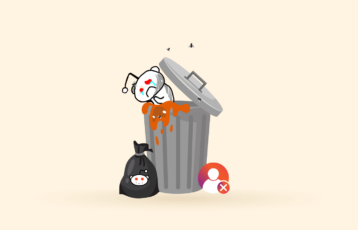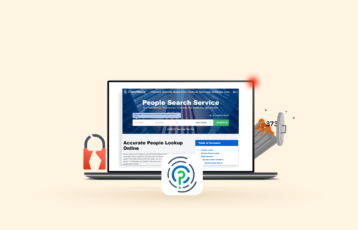With the advent of online dating, you can meet people from all walks of life from the comfort of your couch. You can also sidestep the awkwardness of in-person dates thanks to virtual meeting rooms and apps. However, with such ease and comfort comes the potential for lowered guards and the risks that come with it. Thus, you must know and apply a few basic tips to stay safe while online dating.

Our guide outlines 15 online dating safety tips for a more secure and enjoyable dating experience, including a list of popular scams to look out for and avoid.
Quick overview of the safe online tips for dating
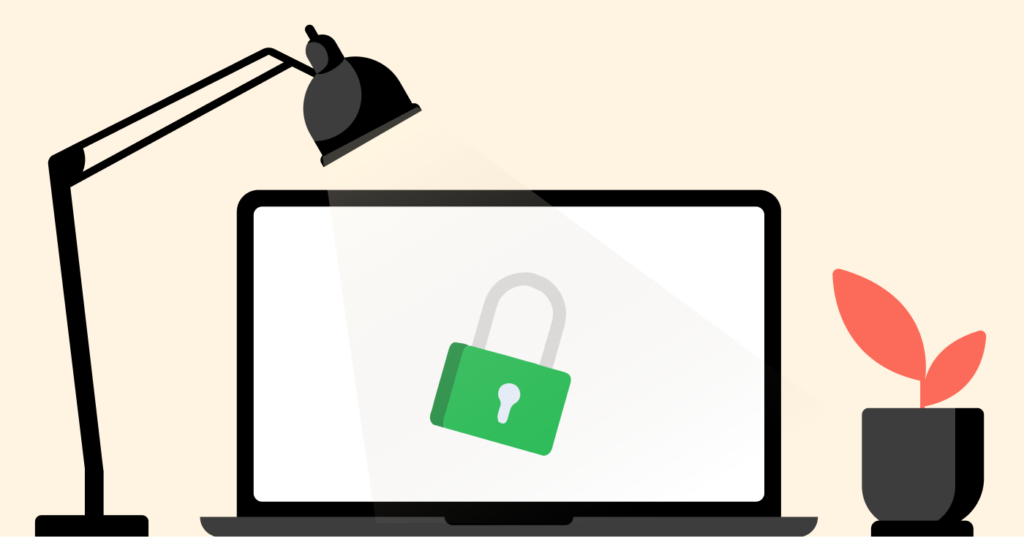
Here is a quick list of our recommended tips for a safe online dating experience.
- Use a reliable dating application.
- Watch what you share online.
- Don’t post same content on different platforms.
- Don’t attach your dating profiles to other social media platforms.
- Turn off your Google advertising ID.
- Turn off location tracking.
- Use a location spoofing app.
- Use a top-notch VPN service.
- Report inappropriate and suspicious behavior.
- Before going on a first date, ask for a video call.
- Do the background check.
- Beware of suspicious files.
- Be careful about revealing your wealth.
- Don’t stick around.
- Be safe during physical dates.
Why is dating app safety important?

Online dating exposes you to many new people you know nothing about — their identity, personality, or anything. So, while it is a great way to meet new people, it’s also an avenue for great danger because of said new people.
As a result, you risk being blackmailed, catfished, or scammed online. For this reason, awareness of these risks and acquainting yourself with the protective measures is a great idea.
The risks of online dating services

Before you embark on the online dating journey, we recommend that you acquaint yourself with the potential risks that come with it. On the surface, online dating can seem safer than meeting these people in the real world, but this is not always true.
Since these sites will collect your private data, there can be data leaks, hacks, and other actions that can put your private info and real-world safety at great risk. These dating sites often:
- Retain records of your messages and images.
- Sell your data to third parties.
- Grant others easy access to your private information.
The above-listed things often compromise your privacy and safety on the platform and in the real world. We explore more of this; keep reading.
Most online dating services gather tons of personal details
Online dating sites often require tons of data from you as a user to help them better serve you and help locate the perfect matches. These sites use machine learning algorithms and artificial intelligence, which combine to analyze the data you provided to suggest other users who would be a great fit.
The data these online dating services require include:
- Health information
- Sexual preferences
- Education details
- Sexual identity
- The preferred religion of the user
- Employment data
- Personal pictures
Other dating platforms store your messages, and these can, of course, be used for the wrong things if they fall into the wrong hands. Certain dating apps are notorious for going as far as sharing private data provided by users. These include Grindr, Tinder, and OkCupid, which ran afoul of the GDPR in 2020.
However, it was not the first time a dating app broke privacy laws. In 2016, the dating app Happn shared sensitive data with an American marketing firm. In 2018, Grindr did the unspeakable when they released the HIV status and physical locations of their users and shared this till 2020.
With these in mind, you can see that even the most established dating channels can put their users in danger; below are some of these dangers:
- Identity theft
- Catfishing
- Money laundering scams
- Stalking
- Fake dating websites
- Sextortion
These are the most popular dangers of using online dating platforms; let’s discuss how to avoid them before going into detail.
Safe online dating: 15 tips
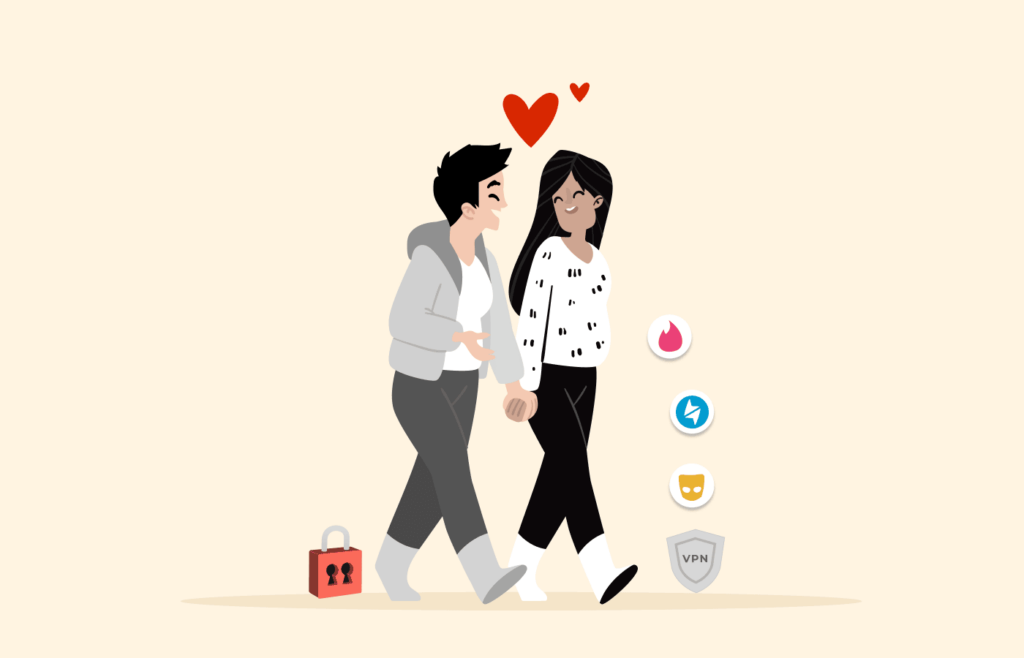
Online dating holds so much promise and many risks, but with the right tips, you can stay safe and get only the good sides. Below are some essential online dating tips for a safer online dating experience.
1. Use a trusted dating app
While this can be tricky, as even popular dating apps have been found to break privacy laws, we encourage research before signing up for any dating app. Some online communities offer great insights and reviews for you to use to your advantage. For example, Reddit and Trustpilot are great places to go if you need to know about a potential dating site.
You can do something independently while you check these online communities for reviews and feedback. These dating apps have privacy policies you can read up on and familiarize yourself with all the potential data they will be collecting and what they intend to do with them.
2. Watch what you share online
As much as you may want to increase your chances of finding a match by providing details about yourself, you are not advised to give out too much. Often, these apps will ask permission to access certain data, where you can take control of what you wish to share. Only grant permission to the things you are most comfortable sharing that do not reveal too much about you.
In addition, do not give away your contact information, which includes your personal or work email, house address, and phone number, including places you frequent. Also, refrain from giving your full name or real name, for that matter.
You can also leave out your sexual orientation and preferences, depending on your location and the laws attached to them. Even after you match with someone and you guys are hitting it off, only share more private information when you are sure you trust them.
Lastly, refrain from sharing any explicit photos or messages. This goes without saying, but financial information is also off-limits.
3. Don’t use the same photo on different platforms
While this may sound strange, it is the most important of all the tips for safe online dating. If you use the same photos on different platforms, that image can be reverse searched to expose those other accounts. The anonymity you would have gotten would be lost, and your personal information would be easily retrieved.
This also means that you should be wary when a dating app asks permission to connect to other social media platforms you use.
4. Don’t link your dating profiles to other social media platforms
As a matter of convenience, the dating apps will ask permission to link your dating profile to other social media platforms on which you have accounts. We do not recommend that you accept its request. If you must link an account for easier logging in, you can use a newly created Google account with no traceable information.
5. Turn off your Google advertising ID
Your Android device comes with a unique number from Google, which it uses to identify users and tailor personalized promotions and advertisements. These ads are often based on users’ online activity.
You can turn this identifier and its associated functions off with the following steps:
- Go to your Android phone’s “Settings.”
- Find “Google” and select “Ads.“
- Tap “Opt out of Ads Personalization.”
Once you finish these steps, you will no longer see any personalized ads in your social media apps, including the dating app.
6. Turn off location tracking
For the dating apps to perfectly match you to the best matches within your area, they need your location data. While this can be a great way to enjoy the app and its services truly, it can be very risky, considering what Grindr was caught doing in 2020.
As a precautionary measure, we advise that you turn off your location tracking settings; here’s how you can:
- Unlock your mobile device.
- Swipe down for the full short-cut menu.
- Select the location symbol to disable geo-tracking.
7. Use a fake location app
Since these dating apps require your location to serve you better, you can use a much safer workaround: a fake location app. A fake location app will help keep your real location hidden while you use the app.
The spoofing can be difficult with the iPhone and its aversion to customization, but with the iTools app, you can do a bit of tweaking and change the location settings. However, this is much easier with an Android device, which allows third-party customization.
8. Use a VPN service
Speaking of spoofing locations and protecting your privacy, a VPN is a great way to do the two simultaneously. It can encrypt your data and route your online activities through secure channels, ensuring total anonymity.
The encryption is great because while you can spoof your location without securely encrypting your online activity, your data can be linked back to you. A VPN’s encryption ensures your data is ineligible to snoopers and the platform.
The VPNs we recommend for use are as follows:
1. NordVPN
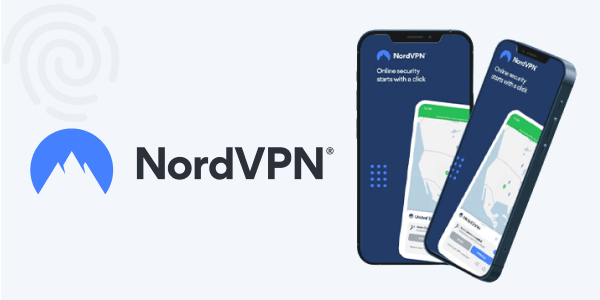
NordVPN boasts a large server base, allowing it to serve users from various countries. So, you can get protection from hackers, scammers, and data thieves wherever you are.
It also employs AES-256 encryption and routes your data through secure and protected channels, keeping you always private and safe.
2. ExtremeVPN

ExtemeVPN stays true to its name, offering extremely high speeds to its users. This means better connection from wherever you are and a much stabler internet experience.
Since our focus is on security and privacy, it does not fall short, thanks to its military-grade AES-256 encryption. You get a service with self-managed servers, ensuring privacy and a no-logs policy.
9. Report inappropriate and suspicious behavior
Dating apps will let you report any accounts you suspect of inappropriate behavior. This also covers instances where the account is pretending to be someone they are not. When you report these accounts, you make the app safe for you and others.
Below are the types of activities you can report accounts for:
- Fake profiles: If an account is unverified, steer clear, especially if it offers too little information or seems too perfect.
- Money demands: If you match with someone and they ask you for money, there’s a high likelihood that you are being catfished.
- Inappropriate messages: These include messages containing threats or blackmail.
- Inappropriate behavior in person: If you decided to meet with someone you matched with and they exhibited unacceptable behavior.
- Sales messages: These can also include spam messages trying to sell you a product or service.
- No video calls: If a profile you matched with continuously refuses to take a video call, perhaps not wanting to reveal their true identity.
10. Before going on a first date, request for a video call
A video call is one way to tell if the person you matched with is who they are. If you and the person you match with set up a date or a meeting, the video call is even more important.
Scammers or catfishes can easily trick their victims with text-only conversations, but with a video call, the whole sham falls apart. So, if your date hesitates or refuses, that is your cue to block and report.
11. Do the background check
With the risk of stalking that comes with online dating, you must protect yourself against it by all means. One way to do this is to run a comprehensive background check on your would-be date.
It would be a much wiser decision than going in blind; no matter how you trust the person, gathering information that may be the difference between a great night and a potential nightmare would not hurt.
A good start for a background check is Googling their names to see if they have any other information on the internet. You could also try the Google reverse image search, which will bring up any other place the picture has been used or related images.
12. Beware of suspicious files
If you match with an account and they immediately send you a file to download, we advise you not to open it. Report the account and block them. These scammers often embed malware and keylogging viruses in files and send them to unsuspecting victims.
These malicious files can possess great potential for harm. For example, the malware can access your financial records and private photos or remotely control your devices. Even after taking these precautions, you can also use a strong antivirus to protect you from potential threats.
13. Be careful about revealing your wealth
As much as you may feel the need to tell your new friends too much on the dating app, perhaps you are excited to rush through the introduction phase, so do not reveal any details about your finances.
If you can, ensure your photos do not reveal much about your financial status. Do not flash your expensive watch, car, or house. Ensure you keep things as simple as possible.
The real risk is that flashing your wealth or properties may attract those with intentions to steal them and possibly harm you. Like in the real world, you would avoid putting your wealth on blast to avoid unnecessary attention.
14. Don’t stick around
Did you find the right one? Congratulations; we recommend you delete your account once you find what or who you seek. When you match with the right person and hit it off, deleting your account symbolizes an end to the search and keeps your private data off the app.
15. Be safe during physical dates
Your safety is of great importance, whether virtual or physical. As such, when you go on a date of the app with your would-be date, there are a few measures you can take to ensure you are safe while out on a fun night. Below are the best tips:
- Tell a friend or relative where the date will happen.
- Insist the date is at a public place like a restaurant.
- Do not drink too much alcohol, and watch your drinks.
- Be nice but also firm. State your boundaries clearly and calmly.
- Install a personal security app in case of emergency. We recommend using Noonlight.
Common online dating scams
Here, we outline the risks associated with online dating in detail. Hopefully, with the tips listed earlier, you can do well to stay safe during online dating.
Fake dating site scams
If a dating platform seems shady, you should steer clear of them. Some of these sites just want to extort you of your money.
Any dating site that charges you money or their purchasable “credits” to talk to people is a scam, and you should avoid them. While in-app purchases are not unnatural for dating apps, the above description is what you should look out for.
You should opt for free and verified dating sites like Bumble and Tinder.
Identity theft
Identity theft is a real and pressing crisis today, so you must keep your private information private. If you share too much online, someone else can create a profile with all that information, posing as you.
These identity thieves will, in turn, use your data to either commit crimes or take loans and other things in your name. You could incur financial ruin or a criminal record for stuff you had no hand in.
As a result, be careful about the amount and quality of specific private information you give out to avoid this happening to you. The less private data is out there, the less there is to steal.
Sextortion
Sextortion involves blackmailing someone while in possession of explicit images or files of theirs. It should go without saying that this is a very complicated and messy situation to be in, which is why we recommend not sharing explicit files with strangers on dating apps.
Some of these extortioners will gain your trust, and then, when they receive the explicit images, turn around to demand money, or they would release it to the public. These files can also be obtained with the use of malware, which is why the use of antivirus cannot be overemphasized.
Catfishing
Catfishing is similar to identity theft in that people pretend to be who they aren’t. They would have gotten the information they’d need to convincingly pass as the other person from stealing information on that person.
Once they successfully settle into this new identity, the next step is to try to scam unsuspecting victims. The scams often include:
- A sick relative.
- They need money because they are stranded.
- Needing a cab fare to see you.
Do not give money to anyone, whether they request it or you feel generous. A random stranger coming to ask you and not their own relative or friends for money is a big red flag.
Stalking
We left this for last because it’s not a scam; it’s more of a potential risk and quite a popular one. It involves an individual stalking your online activities, keeping tabs on everything like retweeting, posting, sharing, and everything.
They do this to gather enough information on you and plan an attack slowly; whether it is identity theft, money laundering, or physical assault, this is how it starts. That is why we advise that you refrain from sharing too much on the internet, as it can be used for unsavory purposes.
Money laundering scams
Remember how we’ve said to avoid sending money to people on dating apps? It would interest you to know that you should not accept money either. While it might sound strange, another scam you may encounter is money laundering.
A crime syndicate can effectively use your account to launder illegal money; you may think it’s just kindness or true love. Be wary of people who are in a hurry to send you money on a dating app; they might be making you complicit in a crime you know nothing about.
Oftentimes, when someone you’re unfamiliar with sends you money to help them purchase something and keep some for your troubles, it may be a scam. They may tell you they need your help because their bank is down or wish to convert the money to crypto. It is better to refuse to help them to be on the safe side.
FAQs
Some red flags to look out for while using online dating apps include a match asking you for money or nudes. Another red flag is a match refusing to make or take a video call.
While our tips apply to people of all genders, women face considerably larger risks. As such, we advise that women take better precautions, adhere to our outlined tips, and follow them without fail.

